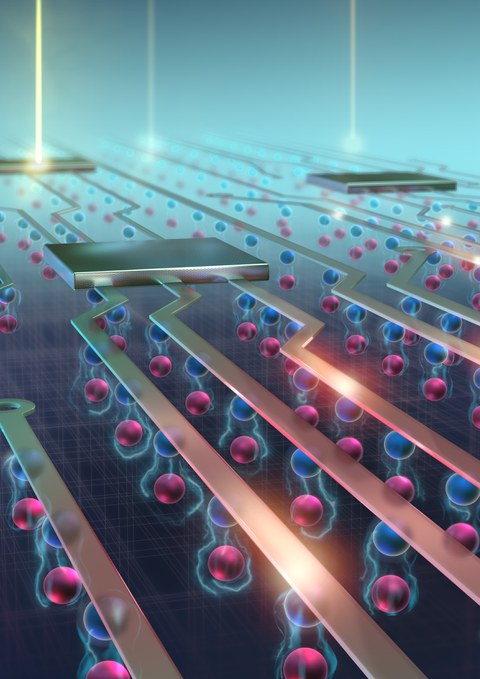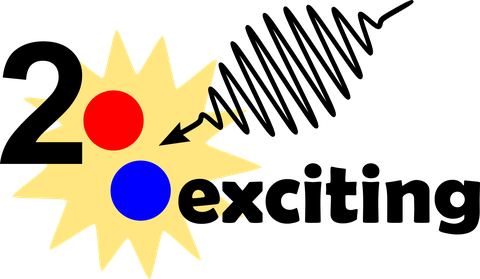Apr 28, 2021
2Exciting: Innovative training network for early career researcher education in 2D research

Due to the strong light-matter interaction at the nano (2D) scale, scientists can find new ways of controlling electrical and optical properties and develop strategies to artificially tailor the optoelectronic properties for a range of existing or emerging applications in electronics, energy storage, sensors and catalysis.
The 2Exciting network (GA No 956813), coordinated by Thomas Heine, Professor of Theoretical Chemistry at TU Dresden, Germany, aims to develop the next generation of scientists with high level skills and understanding of the rapidly evolving field of nano - optoelectronics, the study and applications of electronic devices that interact with light in 2D materials, specifically, semiconductors. The goal of 2Exciting is training early career researchers in an unmatched combination of scientific and complementary skills. The trainees will study the fundamental physics of the light-matter interaction in two-dimensional semiconductor materials to develop innovative optoelectronic devices for telecommunications and next generation technology applications. 2Exciting was granted a budget of 3.92 million under Horizon 2020 Marie Skłodowska-Curie Action, Innovative Training Network Programme.
Technology based on atomically thin, two-dimensional semiconductors (2DS) will underpin the next generation of innovations in computing, energy, and beyond. Due to the strong light-matter interaction at the nano (2D) scale, scientists can find new ways of controlling electrical and optical properties and develop strategies to artificially tailor the optoelectronic properties for a range of existing or emerging applications in electronics, energy storage, sensors and catalysis. Project coordinator Prof. Thomas Heine explains, "Optoelectronics with 2D materials will combine nanotechnology and communication technology and lead to new applications, for example in robotics." The fast growth of industrial applications of 2DS in the imminent future, where Europe is in an excellent starting position, is at risk due to a shortage of highly skilled and qualified researchers and developers with specific experience in this field.
This is where the 2Exciting Network comes in. The 2Exciting brings together eight academic groups that are amongst Europe’s key players in the 2DS field and eight companies with very diverse profiles, to train 15 Early Stage Researchers (ESRs) in scientific and soft skills. The network training program, which comprises three winter schools and three satellite events to the “Flatlands beyond Graphene” conference series, provides scientific and industrial training to all researchers of the network, with active participation of trainers from the involved non-academic partners, both on specific technology issues and on complementary skills such as technology transfer, entrepreneurship, and public outreach. A crucial piece of each trainee’s experience will be the opportunity to spend intersectoral and international secondments (be seconded from academia to industry or vice versa) for six months.
Commenting on the launch of 2Exciting Valeria Nicolosi, Professor of Chemistry at Trinity College Dublin, said: “I very much welcome the success and launch of 2Exciting, and recognise the important support of my academic and industry colleagues from all over Europe. The support of Horizon 2020 under the Marie Skłodowska-Curie Action, Innovative Training Network (MSCA-ITN-2020) provides an incredibly valuable opportunity to train the next generation of scientists in a highly relevant area of strategic importance to the European Union. While hidden from us generally, the science of optoelectronics and 2D materials is the backbone of the internet age, and by attracting the best and brightest to this area, we secure Europe’s economy and security for years to come”.
The 2Exciting Beneficiaries and Partners: Technische Universität Dresden (TUD, Germany), Centre National de la Recherche Scientifique (CNRS, France), Politechnika Wroclawska (PWR, Poland), Agencia Estatal Consejo Superior de Investigaciones Cientificas (CSIC, Spain), Vysoká škola chemicko-technologická v Praze (VSCHT, Czech Republic), École Polytechnique Fédérale de Lausanne (EPFL, Switzerland), Politecnico di Milano (POLIMI, Italy), Software for Chemistry & Materials B.V. (SCM, The Netherlands), Trinity College Dublin (TCD, Ireland), AMO GmbH (AMO, Germany), HQ Graphene (The Netherlands), Oxford Instruments Nanotechnology Tools (United Kingdom), Scixel (Spain), NenoVision (Czech Republic), SYNPO (Czech Republic), Nanores (Poland), Rheinisch-Westfälische Technische Hochschule Aachen (Germany), Vrije Universiteit Amsterdam (The Netherlands), l'Université Toulouse III - Paul Sabatier (France), Universidad Autónoma de Madrid (Spain).
Media inquiries:
Thomas Heine
Professor of Theoretical Chemistry
Tel.: 0351 463-37637

